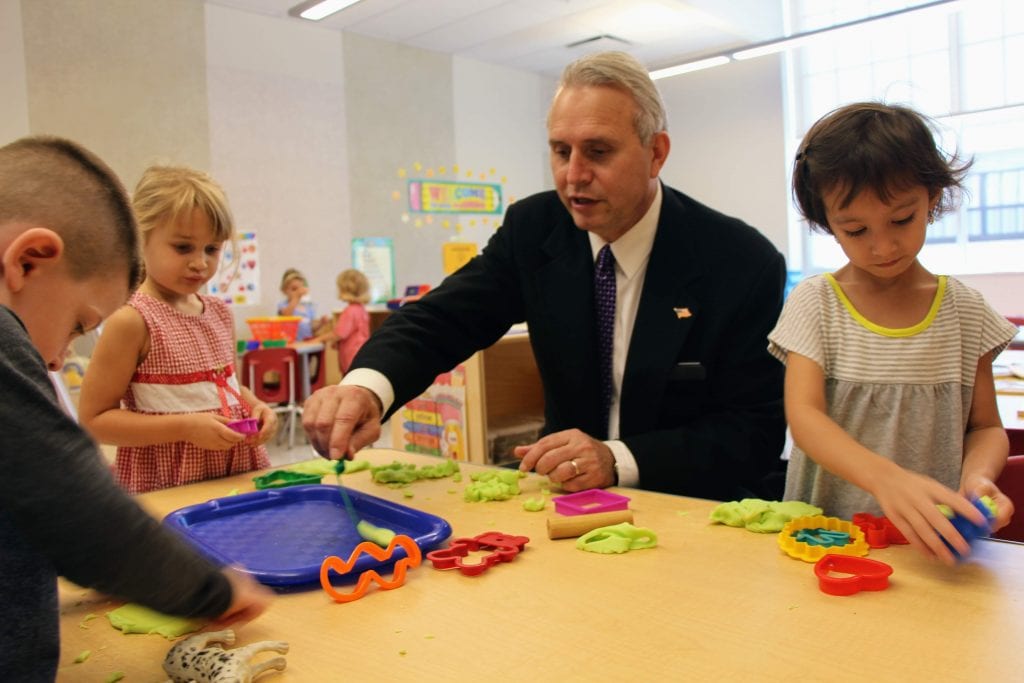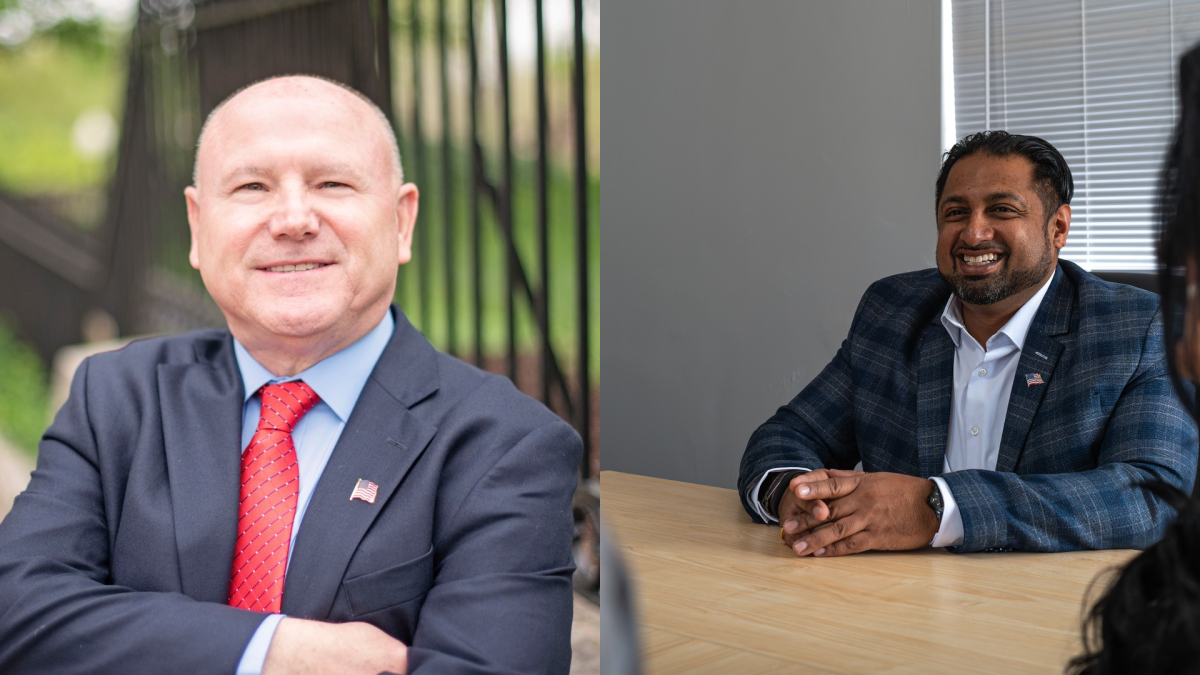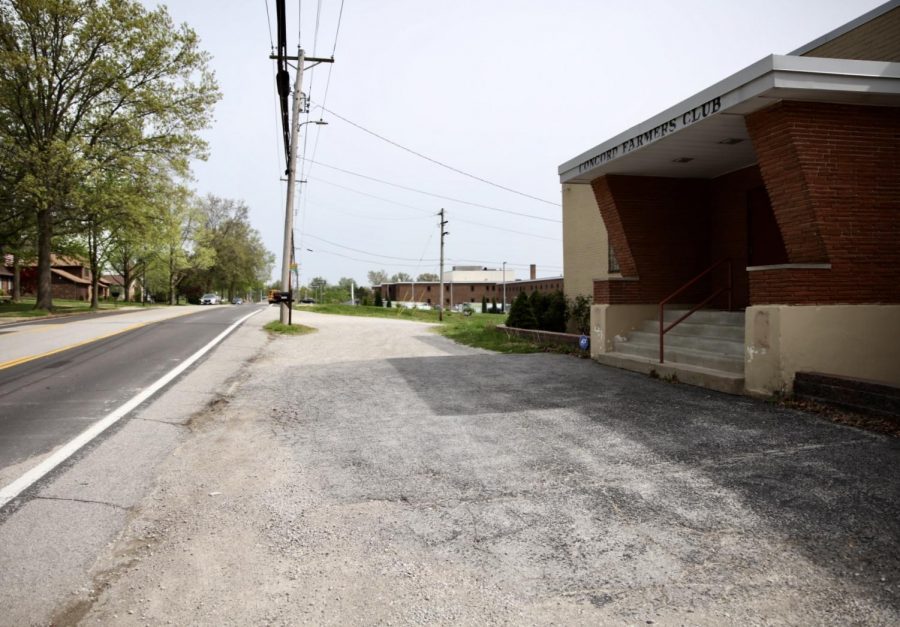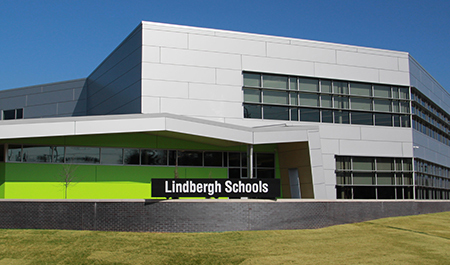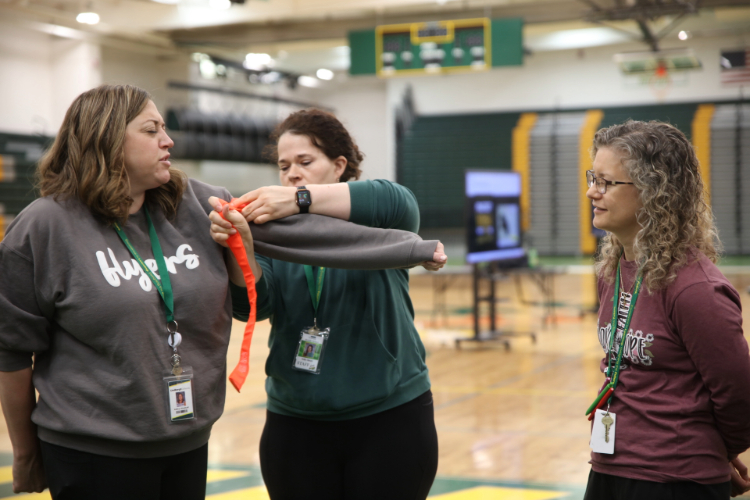By Gloria Lloyd
News Editor
glorialloyd@callnewspapers.com
Lindbergh Schools has racked up top statewide rankings over the last decade, but now it has another, less positive one: It is the last district in the state that doesn’t offer tuition-free full-day kindergarten.
That’s not because the district doesn’t want to offer a full-day program, however, Superintendent Jim Simpson said. The problems come from cost and logistics.
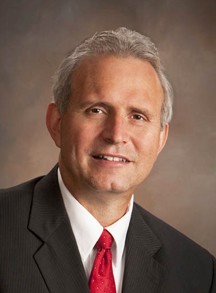
With enrollment growing every year, the district doesn’t have enough classrooms to double its kindergarten day. Doubling classrooms and teachers would also cost more money, which would have to come from somewhere else in a tight school budget.
“Lindbergh has always said we’d love to have full-day kindergarten,” Simpson said. “We’re in harmony with anyone who says, ‘Why don’t you have full-day kindergarten?’ We’re definitely thinking in those terms ourselves. The question is how do we do that when we don’t have a single classroom open? How do we do that when we have 50 more students arrive every year for what resources we have? And then how do we fund it?”
The Board of Education also supports the idea of offering full-day tuition-free kindergarten if the “perfect storm of funding and space challenges” the district faces can begin to change, Communications Director Beth Johnston said.
“Lindbergh’s board and administration are in favor of eliminating tuition for full-day kindergarten and hope that can become a reality in the future,” she said.
The move would cost the district roughly $1.5 million a year, Johnston said. Parents currently pay $3,500 tuition, which adds up to more than $1 million.
Steven Crawford, the parent of twins in kindergarten, is paying for both his children to attend full-day kindergarten and is not happy about it.
He went to the March 13 Board of Education meeting and asked the district to offer the extra half-day without tuition.
“There’s a lot of data out there showing that it’s a plus for kids,” Crawford said.
Until recently, Lindbergh was not alone in only offering half-day kindergarten free to students. In 2012, Lindbergh was one of five districts statewide that didn’t offer it. But Kirkwood began free full-day in 2012 and the Mehlville School District signed on in 2013, followed by Rockwood in 2014 and Webster Groves in 2016.
The problem is that while many other districts in St. Louis County are declining in population, which frees up classrooms, Lindbergh continues to see growth. It doesn’t have spare classrooms or teachers.
And unlike most school districts in the state, Lindbergh is primarily locally funded as a “hold harmless” district rather than a formula district. For each dollar in the district, 92 cents comes from local taxes.
Formula districts can find that state reimbursement brings in enough money to go tuition-free, but Simpson said Lindbergh would “only get a few pennies from the government per child” after the switch.
Classrooms and funding are the biggest obstacles, but there is also the question of what program might have to be cut in order to fit tuition-free full-day kindergarten into the budget, the superintendent noted.
“That funding side of it is full of compromises, and there’s only a certain amount of new revenue going around,” he said. “So if you’re moving large sums into one program, you’re not funding another program.”
Mehlville received enough state aid to pay for extra teachers and classrooms. For years, Webster said it could not afford the extra cost to provide free full-day kindergarten, but the state revised how much aid it grants to lower-income families and that made it work for the district financially, officials said at the time.
After a decade leading the district, Simpson is retiring at the end of this fiscal year, June 30. But he believes the delicate balance of how to expand kindergarten could make a good project next year for his successor, Tony Lake, who currently serves as chief operations officer of the Blue Valley School District in Overland Park, Kansas.
It might make sense for Lake to set up a “blue ribbon” committee to study the issue of tuition-free full-day kindergarten next year and see if Lindbergh is able to somehow provide it, Simpson said.
Rather than rushing in, the district should be very methodical about making full-day kindergarten happen, he added.
“We hope that there’d be full-day kindergarten, and I fully expect there will be as soon as we figure out how to handle the growth and handle all the challenges that come from growth,” Simpson said. “But it will be a very hard thing for Lindbergh to put in full-day kindergarten because it will require some compromises to fit all our other needs — including hiring teachers to keep class sizes down, additional teachers, adding buses to transport more students, more textbooks, more desks, more classrooms to put students in. All those things have to be in a study mix to figure out what compromises you’re going to try to make to make that program happen. It’s much more complicated than on the surface of it.”
Although some parents have suggested that the district could have used money for Central Office for programs like full-day kindergarten, the new office is a one-time cost while kindergarten would be a recurring cost, Simpson said.
“You can’t take it out of reserves because it would bankrupt you if you do that,” he said. “Reoccuring money cannot come out of reserves without imperiling the financial structure of the district. So you’d have to take it out of new money.”
The district’s new revenue is largely how it funds teacher raises and more buses and teachers for the new growth, he added.
Lindbergh could switch to formula
One potential solution could actually come from Lindbergh’s student growth. The district is on the brink of switching from a hold-harmless district to a formula district, which would mean that it is granted more state aid.
The designation is based on student population to tax base, and when the formula was created, Lindbergh didn’t have enough students. When other districts receive increased state funding through formula increases, Lindbergh doesn’t get any of that, Simpson said.
“No new money from the state ever, that’s what ‘hold harmless’ means,” he said. “If the state puts $50 million more in the formula, ‘Lindbergh, you don’t get it.’”
But as a formula district, “we will share in any new money for the state,” he added. “You’re sort of now in the club, and you’re entitled to whatever comes along.”
At first, that will probably be a slight bump since the district would be on the low end of the formula scale.
Although the calculation changes every year, Lindbergh could be about 100 students away from being classified as a formula district. The change could happen as soon as later this year, since the district typically adds at least 100 new students every fall.















